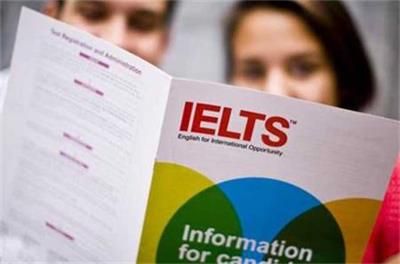2023雅思备考秘籍:政治类高频词汇全解析
嘿,小伙伴们!大家好,我是你们的老朋友小留。今天咱们来聊聊一个大家都很关心的话题——雅思备考中的政治类高频词汇。相信很多小伙伴在准备雅思的时候都遇到过这样的问题:政治类话题总是让人头大,不仅因为涉及的知识点多,而且专业词汇也特别多。别担心,今天我就来给大家揭秘一些政治类的高频词汇,帮助你们在考试中更加游刃有余。
一、政治体制与政府机构
首先,我们来看看政治体制和政府机构相关的词汇。这些词汇在雅思口语和写作中出现频率非常高,掌握它们不仅能让你的文章更专业,还能提升你的表达能力。
- Democracy (民主): 民主制度是指人民通过选举代表来管理国家的制度。例如,"In a democracy, citizens have the right to vote for their leaders."
- Dictatorship (独裁): 独裁制度是指一个人或一小群人拥有绝对权力的制度。例如,"A dictatorship often restricts people's freedom of speech and assembly."
- Parliament (议会): 议会是国家立法机关,负责制定法律和监督政府。例如,"The parliament debates and passes new laws to improve public services."
- Cabinet (内阁): 内阁是由部长和其他高级官员组成的政府核心决策机构。例如,"The cabinet meets weekly to discuss important national issues."
举个例子,如果你在写作中需要讨论不同政治体制的优缺点,可以这样写:“While a democracy ensures that citizens have a say in government decisions, a dictatorship can lead to human rights abuses and lack of political freedom.”
二、选举与投票
接下来,我们谈谈选举和投票相关的词汇。这些词汇在讨论政治话题时非常常见,尤其是在描述选举过程和结果时。
- Election (选举): 选举是指公民通过投票选择领导人或代表的过程。例如,"The upcoming election is crucial for the future of our country."
- Ballot (选票): 选票是选民用来表达投票意向的纸张或电子设备。例如,"Voters cast their ballots in secret to ensure the integrity of the election."
- Referendum (公投): 公投是指就某个特定问题进行全民投票。例如,"The government held a referendum to decide whether to join the European Union."
- Electoral system (选举制度): 选举制度是指用于选举的具体规则和方法。例如,"Different countries have different electoral systems, such as first-past-the-post or proportional representation."
举个例子,如果你在口语考试中被问到对选举的看法,可以这样回答:“I believe that a fair and transparent electoral system is essential for a healthy democracy. It ensures that every vote counts and that the will of the people is respected.”
三、政策与立法
政策和立法相关的词汇也是雅思考试中的常客。了解这些词汇可以帮助你在讨论具体政策时更加准确和专业。
- Policy (政策): 政策是指政府为解决特定问题而制定的计划或措施。例如,"The government has implemented a new policy to reduce carbon emissions."
- Legislation (立法): 立法是指制定法律的过程。例如,"The parliament is currently working on new legislation to protect consumer rights."
- Regulation (法规): 法规是指政府为了执行法律而制定的具体规定。例如,"The new regulation requires all businesses to disclose their environmental impact."
- Bill (法案): 法案是指正在审议中的法律草案。例如,"The proposed bill aims to improve access to healthcare for low-income families."
举个例子,如果你在写作中需要讨论某项政策的影响,可以这样写:“The new policy on renewable energy has had a positive impact on the environment, but it has also increased the cost of electricity for some households. Therefore, the government needs to find a balance between environmental protection and economic affordability.”
四、国际关系与外交
国际关系和外交相关的词汇在雅思考试中也非常重要,尤其是在讨论全球化和国际合作时。
- International relations (国际关系): 国际关系是指不同国家之间的互动和合作。例如,"Good international relations are crucial for global peace and stability."
- Diplomacy (外交): 外交是指国家之间通过谈判和协商解决问题的方式。例如,"Diplomatic efforts have helped resolve many conflicts without resorting to violence."
- Embassy (大使馆): 大使馆是一个国家在另一个国家的官方代表机构。例如,"The embassy provides consular services to its citizens living abroad."
- Treaty (条约): 条约是指两个或多个国家之间签订的具有法律约束力的协议。例如,"The treaty aims to reduce nuclear weapons and promote disarmament."
举个例子,如果你在口语考试中被问到对国际关系的看法,可以这样回答:“I think international cooperation is essential in today's globalized world. Countries need to work together to address issues like climate change and terrorism, which affect us all.”
五、社会运动与抗议
社会运动和抗议相关的词汇在讨论社会问题时也非常有用。了解这些词汇可以帮助你在描述社会现象时更加生动和具体。
- Social movement (社会运动): 社会运动是指一群人为了实现某种社会变革而组织的活动。例如,"The civil rights movement was a significant social movement that fought for equality and justice."
- Protest (抗议): 抗议是指人们通过集会、示威等方式表达不满或诉求的活动。例如,"The recent protests against police brutality have gained widespread support."
- Rally (集会): 集会是指大量人群聚集在一起,通常是为了支持某个特定目标或议题。例如,"Thousands of people attended the rally to demand action on climate change."
- Activism (激进主义): 激进主义是指通过积极行动来推动社会变革的行为。例如, "Many activists use social media to raise awareness about important issues."
举个例子,如果你在写作中需要讨论社会运动的影响,可以这样写:“Social movements have played a crucial role in bringing about social change. For example, the women's suffrage movement led to the granting of voting rights to women in many countries.”
六、媒体与舆论
最后,我们来看看媒体和舆论相关的词汇。这些词汇在讨论信息传播和社会影响时非常有用。
- Media (媒体): 媒体是指传播信息的各种渠道,如报纸、电视、广播和互联网。例如, "The media plays a vital role in shaping public opinion."
- Public opinion (公众意见): 公众意见是指大多数人的看法或态度。例如, "Public opinion on climate change has shifted dramatically in recent years."
- Propaganda (宣传): 宣传是指通过媒体或其他手段传播特定信息以影响公众的看法。例如, "Some governments use propaganda to control the narrative and maintain power."
- Freedom of the press (新闻自由): 新闻自由是指媒体不受政府或其他势力干涉,能够独立报道新闻的权利。例如, "Freedom of the press is essential for a healthy democracy."
举个例子,如果你在口语考试中被问到对媒体的看法,可以这样回答:“I think the media has a huge responsibility to report the truth and provide accurate information. However, it's also important for individuals to critically evaluate the news they consume and not just accept everything at face value.”
结尾
好了,今天的分享就到这里啦!希望这些政治类高频词汇能帮助大家在雅思考试中更加得心应手。记得多加练习,把这些词汇运用到实际的口语和写作中去,这样才能真正掌握它们。如果你还有其他备考方面的问题,欢迎随时留言交流哦!加油,小伙伴们,我们一起努力,争取早日拿到理想的雅思成绩!






